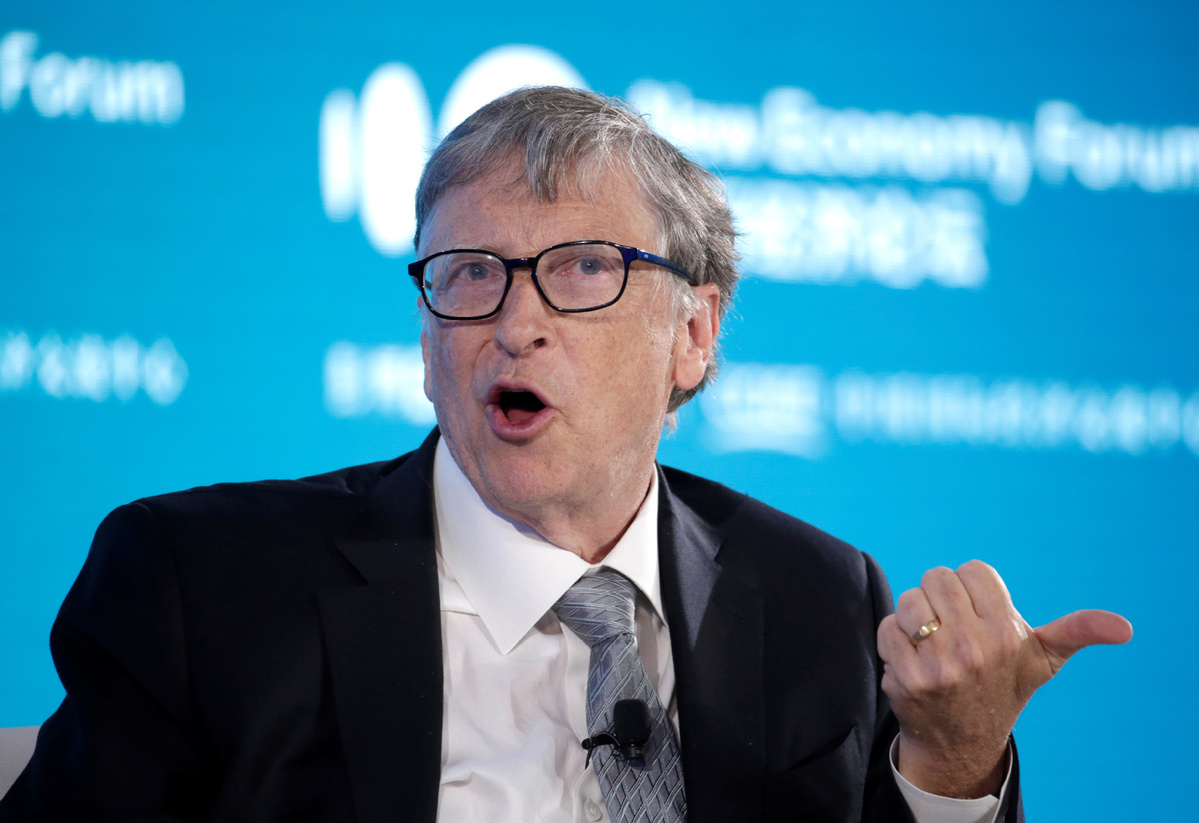Wealth tax debate rages ahead of US election
By SCOTT REEVES in New York | CHINA DAILY | Updated: 2019-12-03 07:45

Democratic Party contenders ask crucial question
Senators Bernie Sanders and Elizabeth Warren, candidates for the Democratic Party's presidential nomination in the United States, have posed a fundamental question about the role of taxation.
Should it, as they advocate, be used to close the income gap between rich and poor or, as Republicans argue, should tax policy foster economic growth?
How voters in next year's presidential election answer those questions could affect the future of the Democratic and Republican parties-and the US.
Sanders, 78, is an independent from Vermont and self-proclaimed socialist who usually votes with the Democrats. He has pledged to run as a Democrat if he wins the party's nomination. He told CNN he seeks "to tax billionaires out of existence" because "billionaires shouldn't exist".
He proposes a 5 percent tax on incomes between $1 billion and $2.5 billion, rising to 8 percent for wealth of more than $10 billion. Sanders believes his plan will raise $4.35 trillion over the next decade.
"We cannot afford a billionaire class whose greed and corruption has been at war with the working families of this country for 45 years," he said.
"Do I think we should demand that the wealthiest top one-tenth of 1 percent start paying their fair share of taxes so we can create a nation and government that works for all of us? Yes, that's exactly what I believe."
Warren, 70, from Massachusetts, said she is "a capitalist to my bones" but told Bloomberg TV, "Encouraging companies to build their business models on cheating people-that's not capitalism."
Warren proposes a 2 percent surtax on net worth in excess of $50 million and 3 percent on more than $1 billion. She does not seek to tax billionaires out of existence, but wants them to pay what she sees as their "fair share". She believes her plan will raise $3.75 trillion over 10 years.
Both senators propose using this new revenue to fund universal healthcare, infrastructure, free tuition at public universities and extending health coverage to those who enter the US illegally-policies estimated by critics to cost more than the new taxes would raise.
Critics say the senators' revenue forecasts are based on faulty assumptions and are therefore overly optimistic. Both Sanders and Warren apparently assume that billionaires won't shelter as much income as possible and would continue to earn as much if they could keep less.
Lawrence Summers, former president of Harvard University who served as treasury secretary under president Bill Clinton from 1999 to 2001 and economic adviser to president Barack Obama from 2009 through 2010, believes new taxes proposed by Sanders and Warren would raise about $25 billion a year.
"For progressives to invest their energy in a proposal that the Supreme Court has a better than 50 percent chance of declaring unconstitutional, that has very little chance of passing through the Congress, whose revenue potential is extraordinarily in doubt, for that to be the defining element of the progressive agenda in the United States, it seems to me potentially to sacrifice an immense opportunity," he said.
Summers made the comments in October at a panel discussion sponsored by the Peterson Institute for International Economics in Washington.
In an opinion piece published in The New York Times, Daniel Hemel, a law professor at the University of Chicago visiting at Harvard, and Rebecca Kysar, a law professor at Fordham University, said the proposed wealth tax may be unconstitutional.
"The constitutional objection to wealth taxation is based on two clauses that require any 'direct tax' to be apportioned among the states based on population," the professors wrote. "Since 12 percent of the population lives in California, Californians must pay 12 percent of any direct tax.
"To match revenue fractions to population percentages, as the Constitution's direct tax clauses demand, we estimate that the wealth tax rate in West Virginia-the poorest state per capita-would need to be roughly 10 times the rate in more affluent California and more than 20 times the rate in prosperous Connecticut. That would be a deal breaker."
Billionaire Mark Cuban, owner of the National Basketball Association team the Dallas Mavericks and worth an estimated $4.1 billion, scorned Warren's proposed billionaire tax and said her estimated income and net worth of $12 million placed her among the top 1 percent of wealthiest people in the US.
"She is selling shiny objects to divert attention from reality. Haven't we had enough of that from @realDonaldTrump?" Cuban tweeted. He believes Warren's motives are malign, "The reality for@ewarren is that this is as much to divert attention from her income and net worth as anything else."























